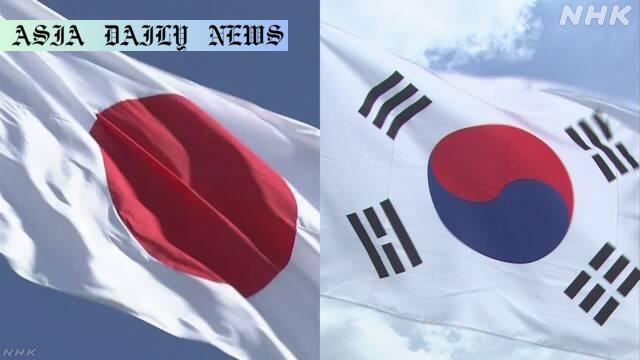Shuttle Diplomacy: Japanese PM Ishiba keen to resume leader visits for enhanced ties with South Korea.
- Shuttle Diplomacy: Japanese PM Ishiba aims to enhance ties with South Korea through mutual leader visits.
- Efforts are focused on fostering future-oriented relations while avoiding divisive historical issues.
- Japanese lawmakers recently met South Korean President Lee Jae-myung, setting a positive tone for collaborations.

Introduction: Strengthening Relations Through Shuttle Diplomacy
Japanese Prime Minister Ishiba Shigeru has expressed a strong desire to reopen diplomatic talks with South Korea through what is termed “shuttle diplomacy.” This approach entails regular visits by leaders of Japan and South Korea to foster open communication and improve bilateral relations. The renewed interest in such diplomacy comes at a time when both countries are poised to move beyond historical issues to cultivate cooperative and forward-looking interactions. Prime Minister Ishiba’s move resonates with a broader goal of reshaping cross-border alliances in East Asia and reflects his leadership’s prioritization of mutual collaboration.
Background and Recent Engagements
Prime Minister Ishiba’s eagerness to initiate shuttle diplomacy aligns with recent strides taken by Japanese lawmakers. A delegation led by former Japanese Prime Minister Suga Yoshihide, who now chairs the Japan-South Korea Parliamentary Association, concluded a two-day visit to South Korea, during which they engaged in meaningful talks with South Korean President Lee Jae-myung. Notably, this meeting, which extended beyond its scheduled time, reflected a cordial and constructive atmosphere. Reportedly, contentious historical issues were avoided, signaling both nations’ intention to build a future-oriented rapport.
Focus on Future-Oriented Relations
A key takeaway from these discussions was the agreement to prioritize cooperative, forward-looking initiatives while setting aside historical grievances temporarily. Nagashima Akihisa, a trusted advisor to PM Ishiba and the association’s secretary general, described the meeting as productive and mentioned that the leaders recognized the importance of deeper engagement. PM Ishiba explicitly instructed his team to propose a resumption of shuttle diplomacy during these talks, emphasizing his resolve to meet South Korean President Lee at the earliest opportunity.
Implications for Japan-South Korea Bilateral Relations
Resuming shuttle diplomacy signifies a major step in revitalizing Japan-South Korea relations, which have been strained in recent years by unresolved historical disputes and economic tensions. Collaboration through high-level meetings can help both nations address mutual concerns, such as regional security challenges and economic strategies, against the backdrop of a fast-changing global landscape. By facilitating open dialogue and mutual understanding, shuttle diplomacy could become a cornerstone for long-term peace and prosperity in East Asia.
The Role of Parliamentary Associations and Civil Diplomacy
Parliamentary associations, such as the Japan-South Korea Parliamentary Association, play a pivotal role in fostering civil connections between nations. By enabling dialogue among senior lawmakers, these associations bridge the gap between political and civic processes. The recent meeting led by Suga epitomizes the potential of these associations to catalyze diplomatic breakthroughs. This format not only elevates trust between countries but also provides a platform to exchange innovative ideas for future-oriented partnerships.
Looking Ahead
As Japan and South Korea continue to navigate the complexities of their bilateral relationship, shuttle diplomacy could instill a framework for addressing long-standing concerns in a structured and amicable manner. The vision of a collaborative future, championed by PM Ishiba and supported by influential lawmakers, offers hope for enhanced regional stability. However, success will depend on both nations’ ability to balance strategic interests with the broader goal of regional cooperation.



Commentary
An Optimistic Turn for East Asian Relations
The resumption of shuttle diplomacy between Japan and South Korea heralds a new chapter in their shared narrative. Historically, the relationship between these two nations has been fraught with challenges ranging from territorial disputes to differing perspectives on pivotal historical events. Yet, Prime Minister Ishiba’s proactive stance on enhancing bilateral cooperation suggests an optimistic turn, one rooted in pragmatic solutions rather than divisive debates.
The Significance of Avoiding Historical Contentions
One striking element of the current dialogue is the deliberate decision to steer discussions away from contentious historical issues. While this may be viewed by some as a temporary measure, it allows for an undistracted focus on future-oriented initiatives. This strategic pivot may pave the way for trust-building measures, as leaders from both nations work toward mutual goals intertwined with economic growth, security, and cultural exchange.
Why Timing Is Crucial
Timing plays a critical role in the success of shuttle diplomacy. Amid heightened security concerns in East Asia and evolving global alliances, Japan and South Korea find themselves at a crossroads, where cooperation could yield significant geopolitical advantages. By addressing shared concerns—like strengthening trade frameworks or tackling North Korea’s nuclear threats—Japan and South Korea hold the potential to emerge as pivotal partners in securing regional stability.
A Path Toward Regional Leadership
Ultimately, the revival of shuttle diplomacy isn’t just about resolving bilateral issues—it’s about setting an example for regional diplomacy. By fostering a collaborative mindset and demonstrating the value of high-level dialogue, Japan and South Korea can influence how other countries approach conflict resolution. Prime Minister Ishiba’s leadership may very well serve as a blueprint for constructive international relations in the 21st century.